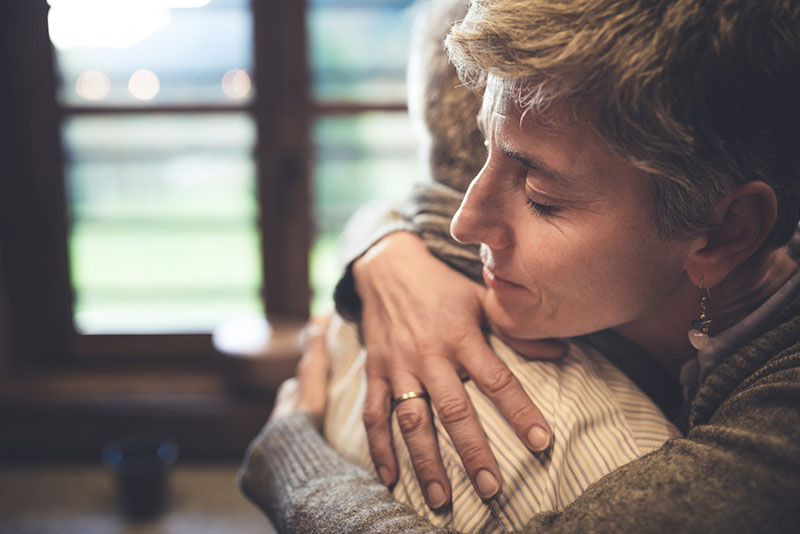
Few people know the many steps to take after a loved one passes, but this timeline can help keep details in order.
When an elderly parent dies, there are a number of personal and legal matters that must be handled. Knowing what steps to take after a loved one passes can be challenging, especially while also dealing with grief.
To help this time feel a bit less daunting, our senior care professionals have put together the following guide so you’ll know exactly what tasks need to be completed following the passing of a loved one.
Step One: Right Away
- Get a declaration of death. Depending on your loved one’s location at the time of passing, this might be delivered by a hospice nurse, or staff in a hospital or long-term care facility. If you’re taking care of the individual in his or her home without the support of medical professionals, call 911. EMTs will provide transportation to the emergency room for a legal pronouncement of death.
- Inform family and friends. There are plenty of ways to accomplish this, depending on what is most comfortable for you. You might want to personally contact each individual through a phone call, email, or in-person visit. You may want to ask for assistance, assigning others to contact a certain group of people (i.e., faith community members, friends from organizations the person was involved in, neighbors, etc.) to aid in spreading the news. Or perhaps you might want to post on social media, so you can make one announcement that reaches everyone in the person’s group of acquaintances.
- Schedule a gathering with immediate family members to talk about funeral plans. In the event that the senior had prepaid/preplanned final arrangements, review those plans with immediate family. If not, start the conversation on preliminary information: which funeral home you’d prefer to go with, the available budget, and any high-level details that you’d like to make sure to include.
Step Two: Within 2 or 3 Days of Passing
- Schedule funeral arrangements. Utilizing the information from your initial family meeting, meet with the funeral home staff to work through the details:
- Will the individual be cremated or buried?
- What kind of urn or tombstone might you want?
- Where will the funeral or memorial service take place?
- Who will write the obituary? Act as pallbearers? Speak at the service? Handle thank-you notes? Organize a post-funeral gathering?
- Make sure the residence and any belongings are safe. Lock up any cash, jewelry, or other precious items, as well as the person’s home and car. Furthermore, if the person had any pets, confirm who will take over ownership – making certain they get lots of care and attention, as they will be impacted by the loss and changes too.
- Forward mail. The post office can set up a forwarding order so that the person’s mail will be redirected to the person handling their affairs. The designated person will also have to monitor mail to end subscriptions and services, deal with any bills, etc.
Final Steps: Two Weeks After Passing
- Pull together paperwork. Ask for ten certified copies of the death certificate, which will be needed to file insurance claims, close bank accounts, and more. The funeral home can assist you with this, or you can get them yourself from the state vital records office. You’ll also need to find the person’s will and determine who the executor is.
- Meet with a lawyer and CPA. A lawyer, chosen by the executor, will ease the task of settling the estate and dispersing possessions. A CPA can help with filing the last tax return on the person’s behalf.
- Inform other entities. The funeral home should get in touch with the Social Security Administration, but you will want to confirm this. In addition, if the person had a life insurance policy, now is the time to file a claim. Check with the person’s bank(s), stockbrokers, and financial advisers to ascertain the beneficiary of the accounts and provide a copy of the death certificate. You’ll also need to close any credit card accounts and get in touch with the Department of Motor Vehicles to cancel their driver’s license.
When a parent dies, there is often a surviving spouse who needs support and care. Hearts at Home In-Home Care, one of the top rated home health agencies in Kansas City and the surrounding areas, can help. Our compassionate caregivers can help plan and prepare nourishing meals, provide companionship to ease loneliness, assist with personal care needs, and much more. Let us help so that you can focus on the many practical tasks that need to be handled following a loved one’s passing. Call us today at 913-440-4209 to find out more about our services.
